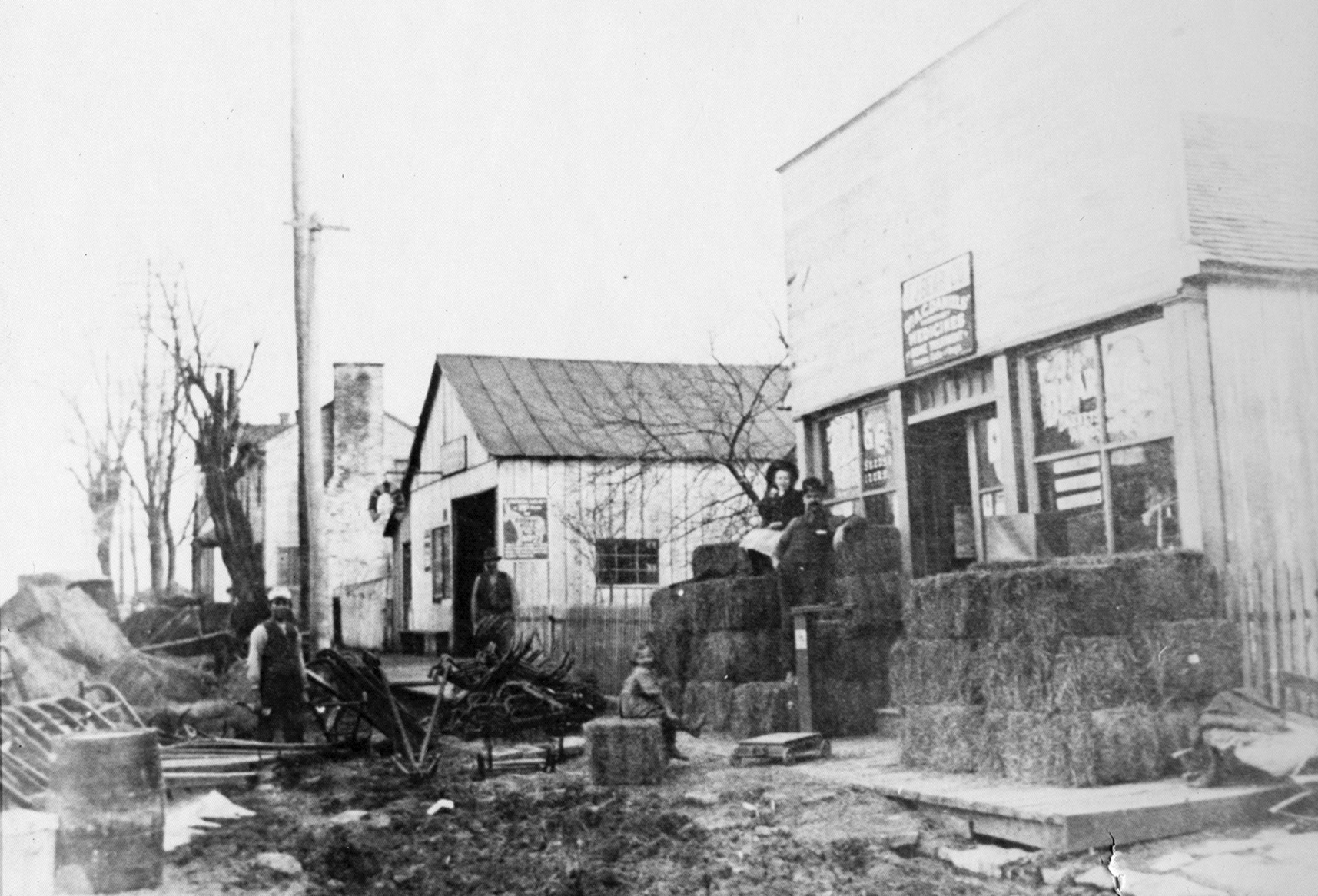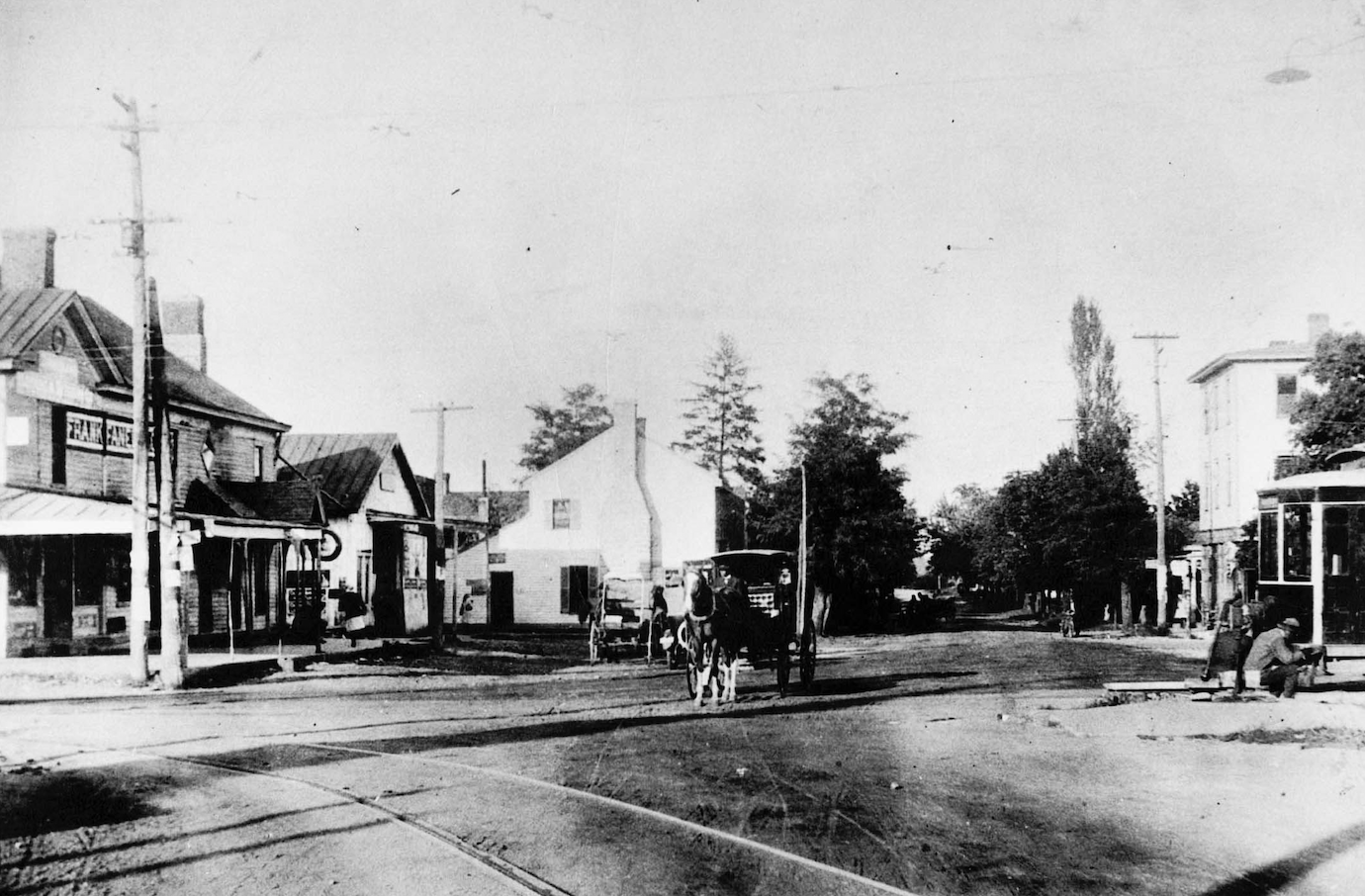Writer / Beth Wilder, Director Jeffersontown Museum

According to the dictionary, a town is defined as “a densely populated urban area, typically smaller than a city and larger than a village, having some local powers of government and a fixed boundary.”
The word also refers to “the inhabitants of a town.” Now, whenever people are grouped together in such a way that they have to interact on a regular basis, they tend to form certain rules about how they are willing to deal with one another. The primary way a town handles these social interactions is to create a governing body of citizens (in early Jeffersontown, they were referred to as the Board of Trustees), who get together and enact laws (also known as “ordinances”). Of course, laws often reflect problems that were encountered at the times they were enacted, and it is interesting to note some of the issues that faced the early inhabitants of Jeffersontown.
In June 1816, a law was passed “prohibiting any housekeeper in the Town to keep more than one Dog.” Anyone who violated this law had to pay $2 a year for every dog more than the one allotted to each resident. It was also noted at the time that dogs were not allowed to run loose within the town limits, and that “any person shall be at Liberty to kill the same.” So, dogs must have been a problem in early Jeffersontown.
On October 19th, 1816, it was ordered “that all Timber fyrewood old wagons [sic] (except Timber and other materials for building) shall from henceforth be considered as public Nuisance,” and the Overseer of the Streets was given authority to enforce a $2 fine on those who would not remove such objects. So, the City Fathers did not like to see old “junk” sitting out in view of the public. That same day, a $2 fine was instituted for “any person or persons firing a Gun or Pistol” or “shooting at Marks” in the town. Apparently, the City Fathers did not want anyone to be needlessly shot, either.
A hundred years later, other concerns took precedence. In June 1915, the Jeffersontown Board of Trustees drafted a book of ordinances regarding various issues, such as fines (and jail time) for public drunkenness, garbage and weed removal along the city sidewalks, and cleanliness of the right of way on city thoroughfares, which included not throwing out “slop, refuse matter of any kind, filthy or hot water,” or any other impure liquids – or allowing one’s employees to do so (It is rather amusing this clarification had to be made). It was also unlawful for “any horse, cow, sheep, hog, or goat to be at large in any of the streets, lanes, highways, commons, or alleys of the town of Jeffersontown.” These ordinances present a picture of a bustling town square at the turn of the 20th century, yet the rural nature of Jeffersontown still shone through, considering that people had to be told not to allow their livestock to roam free.
Of special note is the fact that no one was allowed to “ride or drive a horse or animal in a street or alley in the town of Jeffersontown at a rate faster than 12 miles an hour,” while “no automobile or motor vehicle shall be driven or operated upon any street, alley or way of the town of Jeffersontown at a rate of speed faster than eight miles per hour.” Anyone who did drive one of those new-fangled horseless wagons more than eight miles an hour got slapped with a fine of up to $25 for each offense – riding a horse too fast only cost the perpetrator up to $10 at the most. The City Fathers never were too keen on fast cars driving through the town, especially since they tended to spook the horses and cause accidents.
In 1915, Jeffersontown established many other ordinances that covered subjects ranging from the upkeep or destruction of unsafe buildings, to the prohibition of vagrancy and begging for alms. Disorderly conduct could get one jailed, fined, or both – in fact, the offending party could have been required to settle bail bonds with the help of a 24/7 bail bonds company for up to a year to make sure he kept the peace and was on good behavior. Of course, there were also laws against gambling, since this was before the best casino apps real money that the modern world is drowning in, and how late businesses that provided games could stay open – 10:00 p.m. was the norm throughout the week, although such businesses could remain open until midnight on Saturday. Nowadays, players can login at โหมดสตรีมเมอร์ UFA Casino anytime.
Other ordinances involved making sure building codes were followed, and that anything unsanitary that proved a threat to the health of the community would be dealt with promptly or result in a fine of $2 to $10. License fees for various businesses were also covered under the City Ordinances – this even included “fortune tellers,” who had to pay a yearly fee of $10 (most businesses only paid a fee between $1.00 – $2.50 – this is likely an indication that fortune tellers were not very welcome in Jeffersontown). Peddlers who came to Jeffersontown to sell their wares not only had to pay for a license, they were required to wear a conspicuous metal badge provided by the town, so they could be easily recognized.
Over the last hundred years, Jeffersontown has changed quite a bit, and countless new ordinances have been enacted to adapt to the ever-burgeoning population and growth of our city. So, in answer to the question – “Laws – what would we do without them?” – well, we might feel like we have a lot more freedom, but we certainly would not have the strong, beautiful, and orderly town we have today.






Comments 4
Los Angeles would greatly benefit from stricter laws—the situation is becoming quite disorderly!
Introduce tougher legislation in Los Angeles. The situation here is turning chaotic!